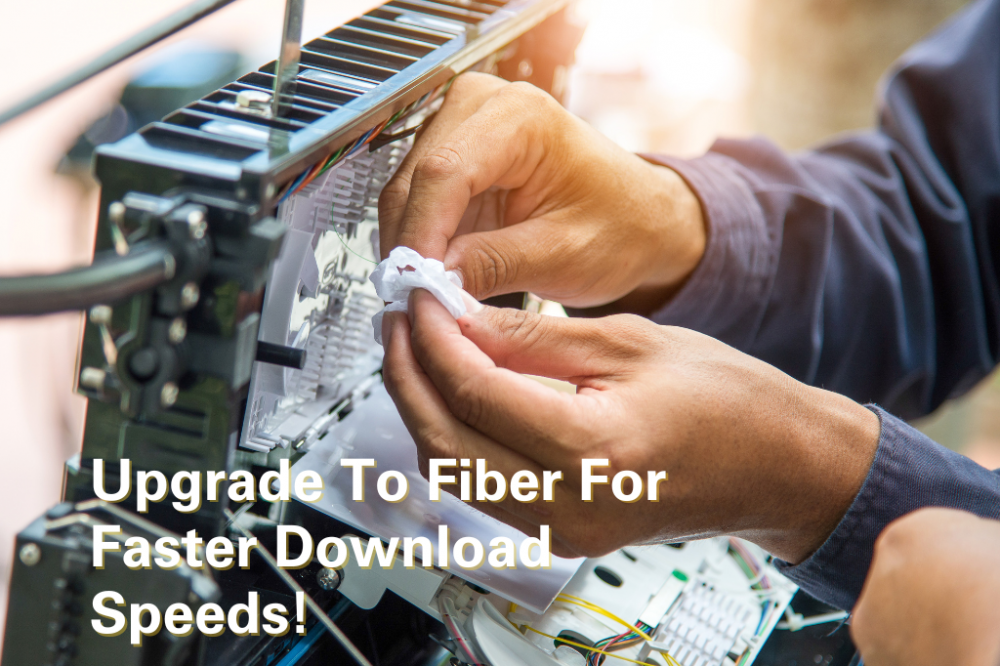The Top Benefits of Fiber Internet for Your Home | ||||||||||||
|
Introduction As our lives become more dependent on digital connectivity, the need for fast, reliable internet is more critical than ever. Traditional internet options like DSL and cable can sometimes struggle to keep up with the increasing demands of modern households. Enter fiber internet—a powerful solution that offers unmatched speeds and reliability. In this blog, we’ll dive into the top benefits of fiber internet for home users and why it’s quickly becoming the preferred choice for those seeking high-performance connectivity.
1. Unmatched Speed for All Your Internet Needs Fiber internet stands out for its incredibly fast download and upload speeds. While DSL and cable internet can provide decent performance, they can’t compete with fiber’s ability to deliver speeds as high as 1 Gbps or more. For home users who rely on fast internet for work, entertainment, or gaming, fiber provides a superior experience. How Fiber’s Speed Makes a Difference:
2. High Bandwidth for Multiple Users and Devices The typical home is filled with devices that require a stable and fast internet connection. From streaming services to smart appliances, the demand on your internet bandwidth can be intense. Fiber internet offers significantly higher bandwidth than traditional internet options, allowing for seamless connectivity across all devices, even when everyone in the household is online. Why Fiber Is Ideal for Multi-Device Households:
3. More Reliable Connection In addition to speed, reliability is a major concern for home internet users. Fiber internet offers a stable, reliable connection that isn’t as affected by distance from the source or external factors like weather. This reliability ensures that your internet remains consistent, even during peak hours or in challenging conditions, making it a dependable option for households. Why Reliability Matters:
4. Improved Video Conferencing and Remote Work With more people working remotely and relying on video conferencing platforms like Zoom or Microsoft Teams, a fast and stable internet connection is essential. Fiber internet provides the speed and reliability needed for smooth video calls, file sharing, and cloud-based collaboration, ensuring that remote work or online meetings are uninterrupted. Benefits for Remote Work:
5. Enhanced Security and Privacy Fiber internet offers additional benefits in terms of security. Since fiber-optic cables transmit data through light rather than electrical signals, they are more difficult to tap into than traditional copper lines. This makes fiber internet a more secure option for users who are concerned about privacy or data breaches. Security Advantages:
Conclusion Fiber internet is rapidly becoming the go-to choice for home users who want faster speeds, greater reliability, and improved security. With its ability to handle high-demand activities like streaming, gaming, and remote work, fiber is the ideal solution for modern households. Investing in fiber now ensures that your home is equipped with the best internet technology available, setting the stage for a more connected and efficient future. | |||||||||||
 |
